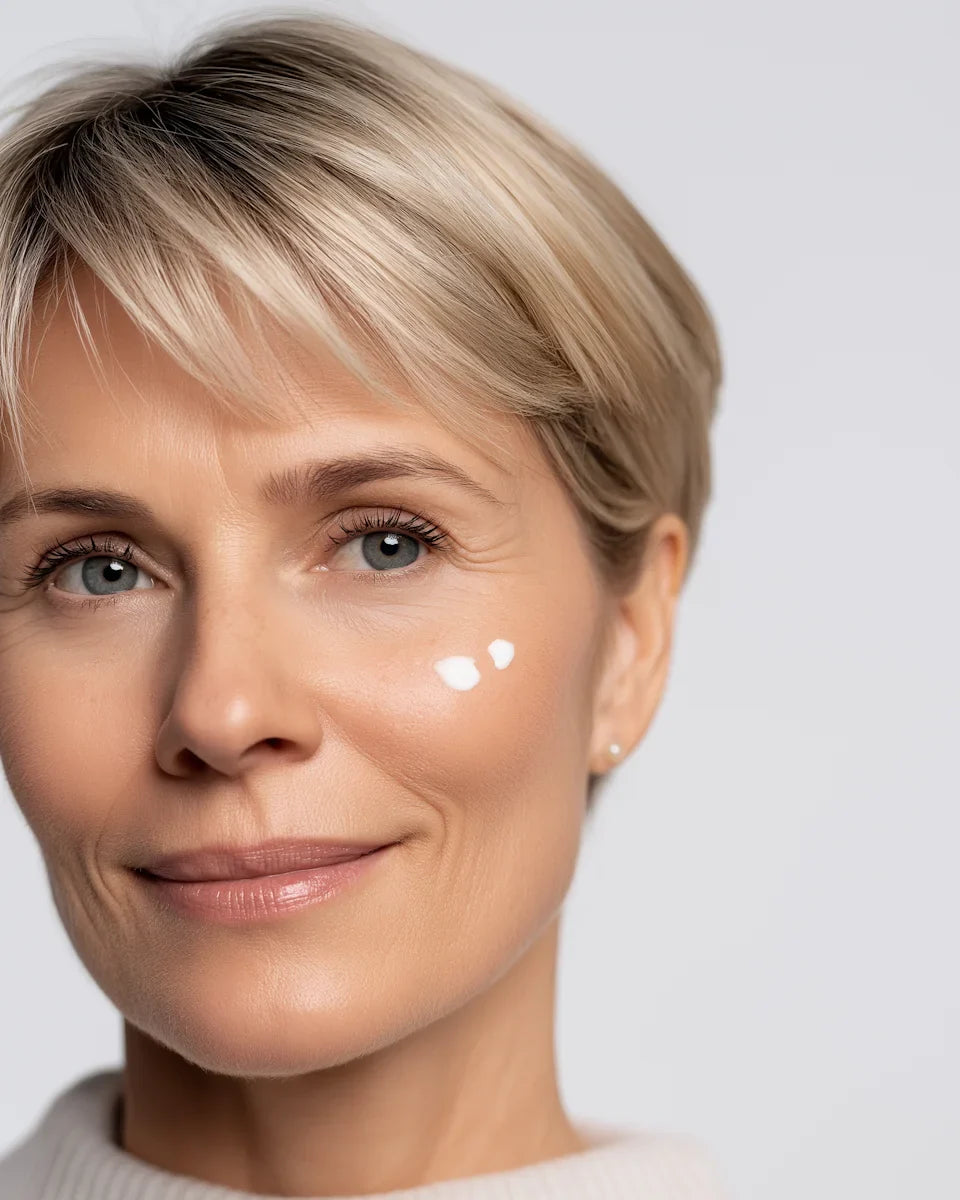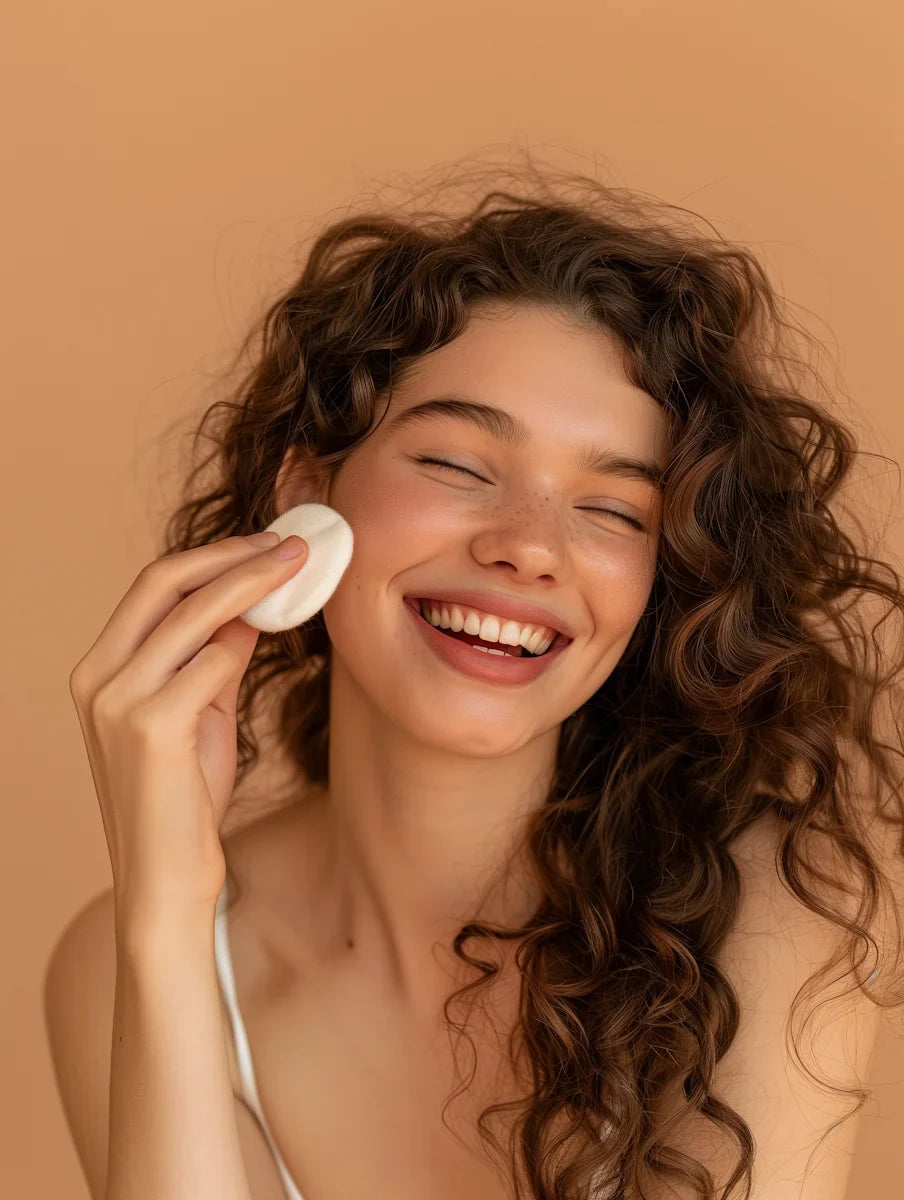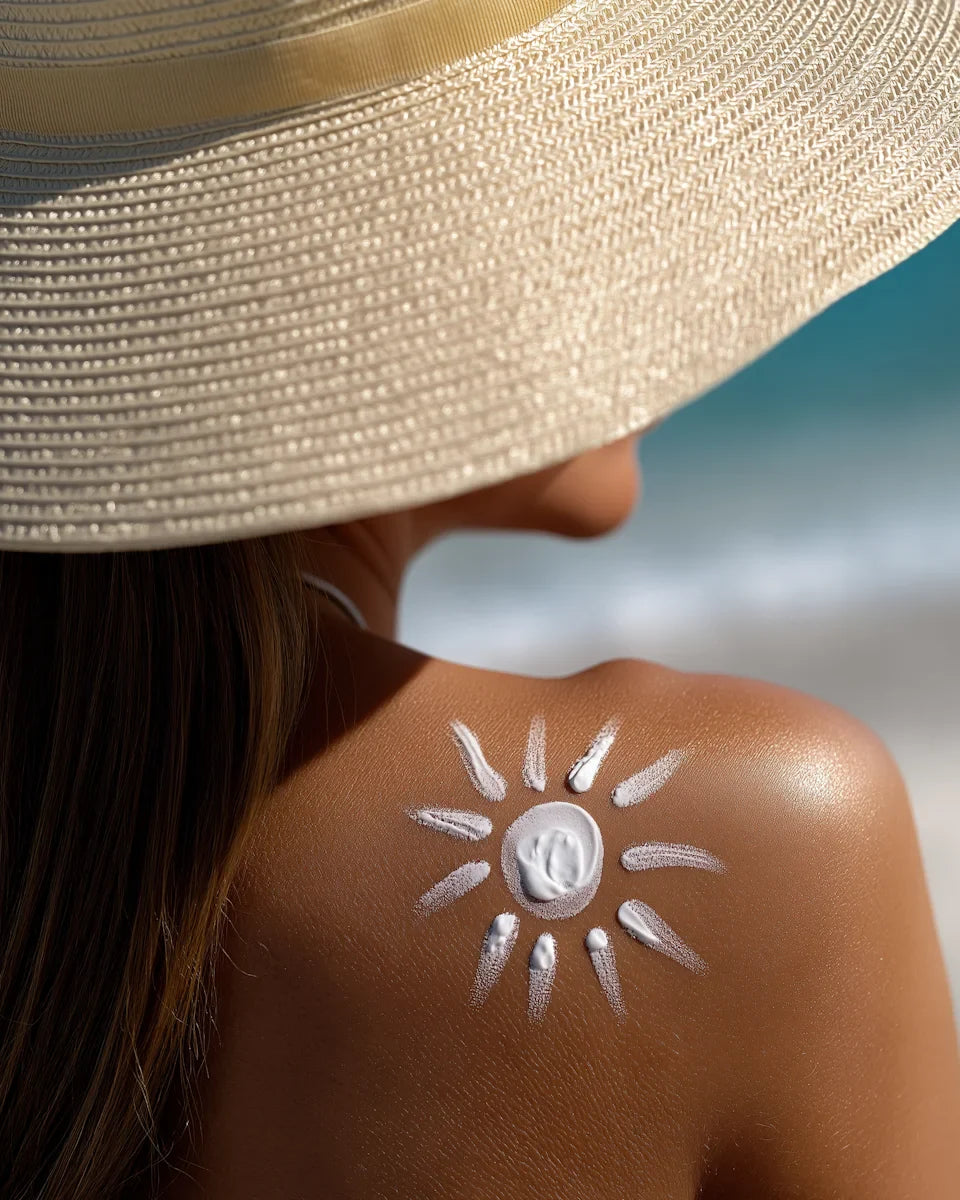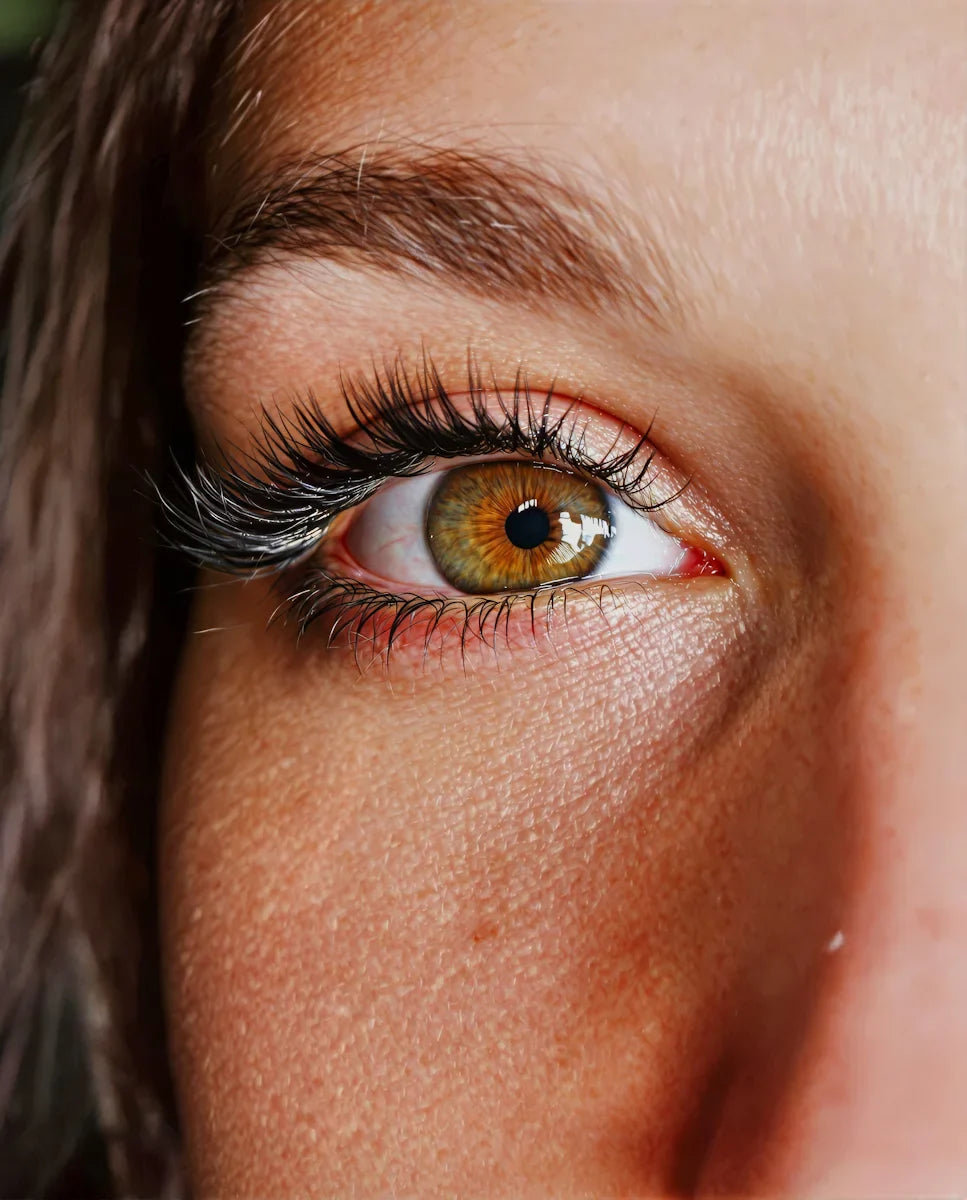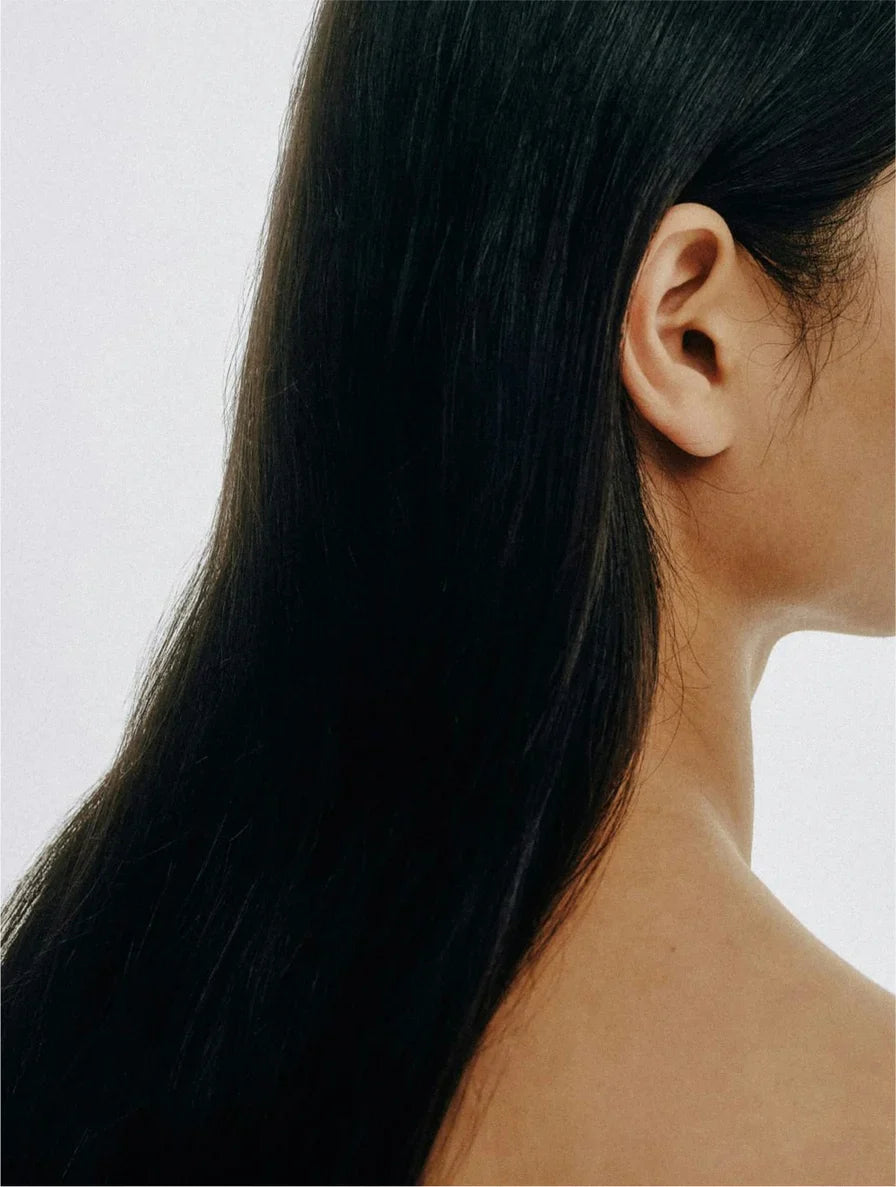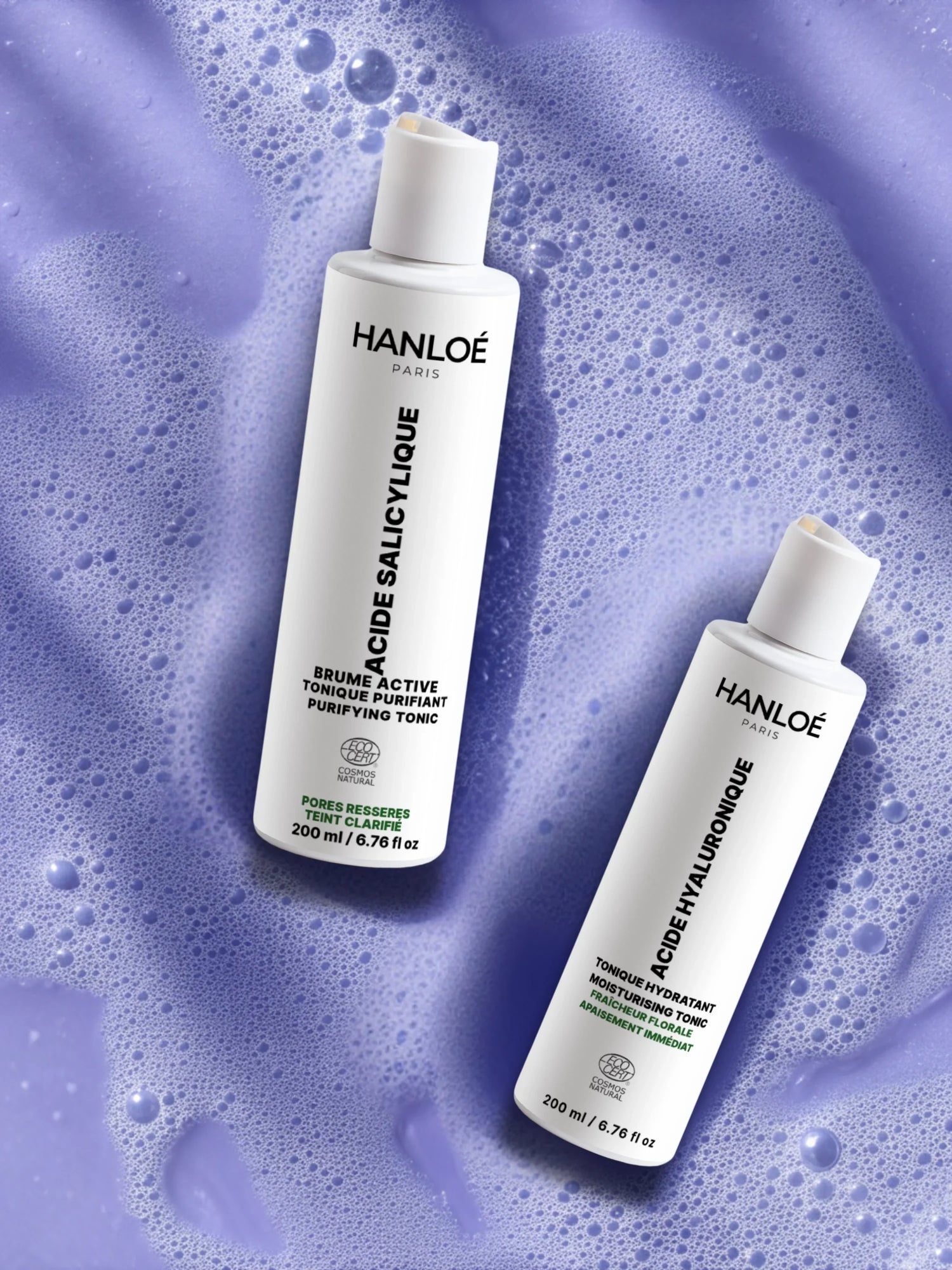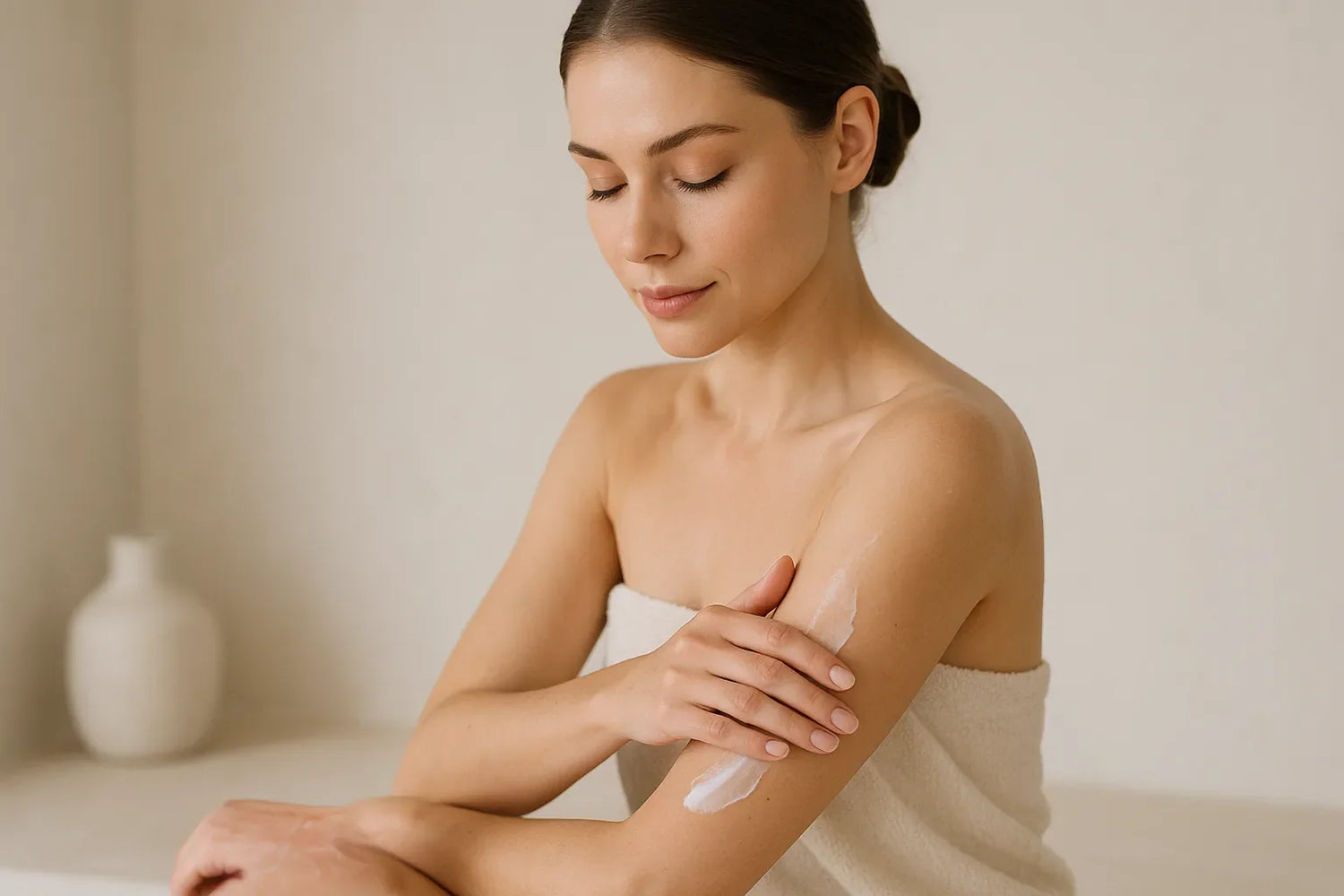Chronobiology of the Skin: Why Your Routine Must Adapt to the Circadian Rhythm (Complete Guide 2025)
Your skin follows a 24-hour cycle. During the day: defense. At night: repair. Adapting your skincare to this rhythm maximizes results—without overdoing it, just at the right time.
🎥 Chronobiology in 60 seconds
If the video doesn't appear, open it on YouTube .
Your skin's biological clock
Each skin cell follows a 24-hour rhythm orchestrated by CLOCK and BMAL1 genes. During the day, the skin strengthens its barrier and activates its antioxidant defenses. At night, it repairs DNA, renews the epidermis and synthesizes collagen and elastin.
To go further (scientific article): Chronobiology — the new science of life .
Your Skin's Secret 24-Hour Schedule
6 a.m. – 12 p.m.: protection mode
- Reinforced skin barrier, activated antioxidant defenses
- Moderate sebum production
12 p.m. – 6 p.m.: peak of oxidative stress
- Free radicals on the rise
- Progressive dehydration
Tip : A mid-afternoon antioxidant spray helps neutralize free radicals before they damage collagen.
6 p.m. – midnight: regeneration phase
- Optimal absorption of active ingredients
- Start of cellular repair
Between 8 p.m. and 10 p.m., skin absorbs up to 20% more—this is the ideal window to apply your concentrated skincare.
Midnight – 6am: Intensive repair
- Maximum collagen & elastin production
- Higher transepidermal water loss
The 5 Mistakes That Sabotage Your Skin Clock
- Poorly synchronized active ingredients (retinol in the morning, pure vitamin C in the evening)
- Blue light after 9 p.m.: delays regeneration
- Treatments applied too early in the evening
- Lack of double cleansing
- Irregular sleep = high cortisol → degraded collagen
Hanloé Chronobiological Routine
Morning (7am – 8am): Protect & energize
Evening (8:30 p.m. – 10 p.m.): Nourish & regenerate
Chronobiology & mature skin
With age, nighttime regeneration slows down. Concentrate your anti-aging actives in the evening and expose yourself to natural light in the morning to resynchronize your biological clock.
- Collagen synthesis stimulating peptides
- Powerful antioxidants (Vit C, astaxanthin)
- Ceramides & essential fatty acids
- Bakuchiol as a gentle alternative to retinol
The allies of rhythm
Diet: antioxidants in the morning, omega-3 at midday, magnesium in the evening.
Exercise: intensive in the morning, relaxing in the evening.
Sleep: Avoid screens after 9 p.m., sleep before 11 p.m. to align the melatonin peak.
Visible results
- 2 weeks: brighter skin
- 1 month: refined texture, reduced redness
- 3 months: firmness + lasting radiance
Chronobiology doesn't create an instant miracle—it allows your skincare to work *exactly when your skin needs it*.


